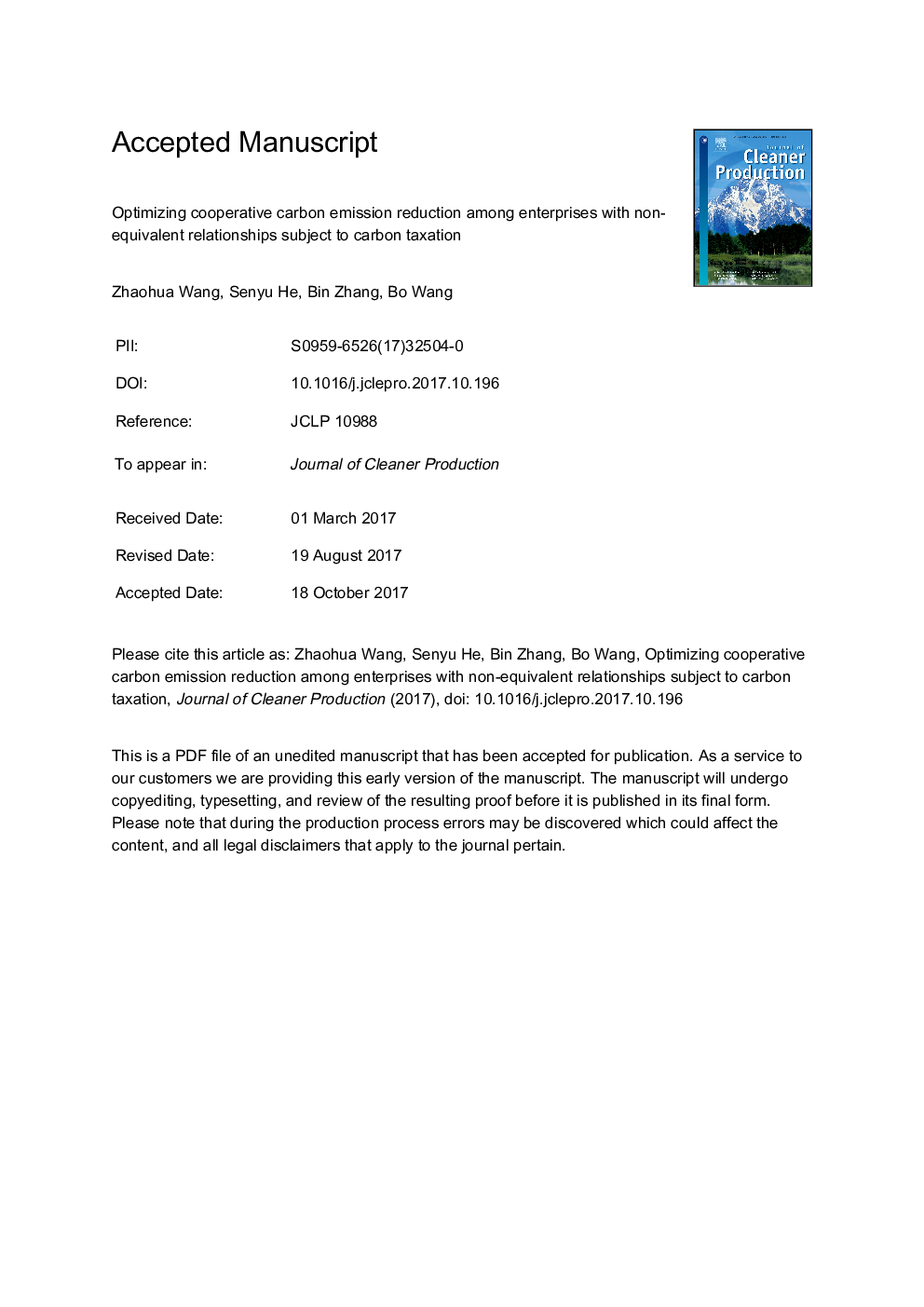| Article ID | Journal | Published Year | Pages | File Type |
|---|---|---|---|---|
| 8099938 | Journal of Cleaner Production | 2018 | 54 Pages |
Abstract
Getting enterprises to reduce carbon emissions cooperatively is an effective way of sharing the burden of carbon taxation. It is easier for core enterprises to promote cooperation because of their dominant positions in the supply chain. The main goal of this paper is to provide a potential method for the core enterprise to organize this cooperation successfully. We explore how core enterprises should allocate their reduction investments and coordinate the selection of technology upgrade strategies so as to maximize their profits without disrupting the profits of cooperating enterprises for a supply chain where there are non-equivalent relationships between enterprises. The main hypotheses are that each enterprise only produces one product, and each production process in each enterprise can only select one production technology, and the intermediate products are mainly traded among cooperative enterprises. A model based on independent carbon emission reduction (Model I) is first constructed and used to analyze each enterprises' basic information when they reduce carbon emission without cooperation (considering total costs, profits, and so on). Then, based on this information, a model including cooperation is proposed (Model II). In Model II, the enterprises are divided into core and cooperative enterprises and both capital and technical cooperation are considered. A multi-agent system is presented to simulate the negotiations between the enterprises and is then used to solve Model II. Finally, a numerical example is considered to examine the feasibility of the proposed model. The results indicate that a cooperative carbon emission reduction strategy has more advantages than the independent carbon emission reduction approach. A notable advantage is that it can further rationalize the emission reduction structure of the supply chain through rational allocation of reduction investments and thus further restores profits.
Related Topics
Physical Sciences and Engineering
Energy
Renewable Energy, Sustainability and the Environment
Authors
Zhaohua Wang, Senyu He, Bin Zhang, Bo Wang,
